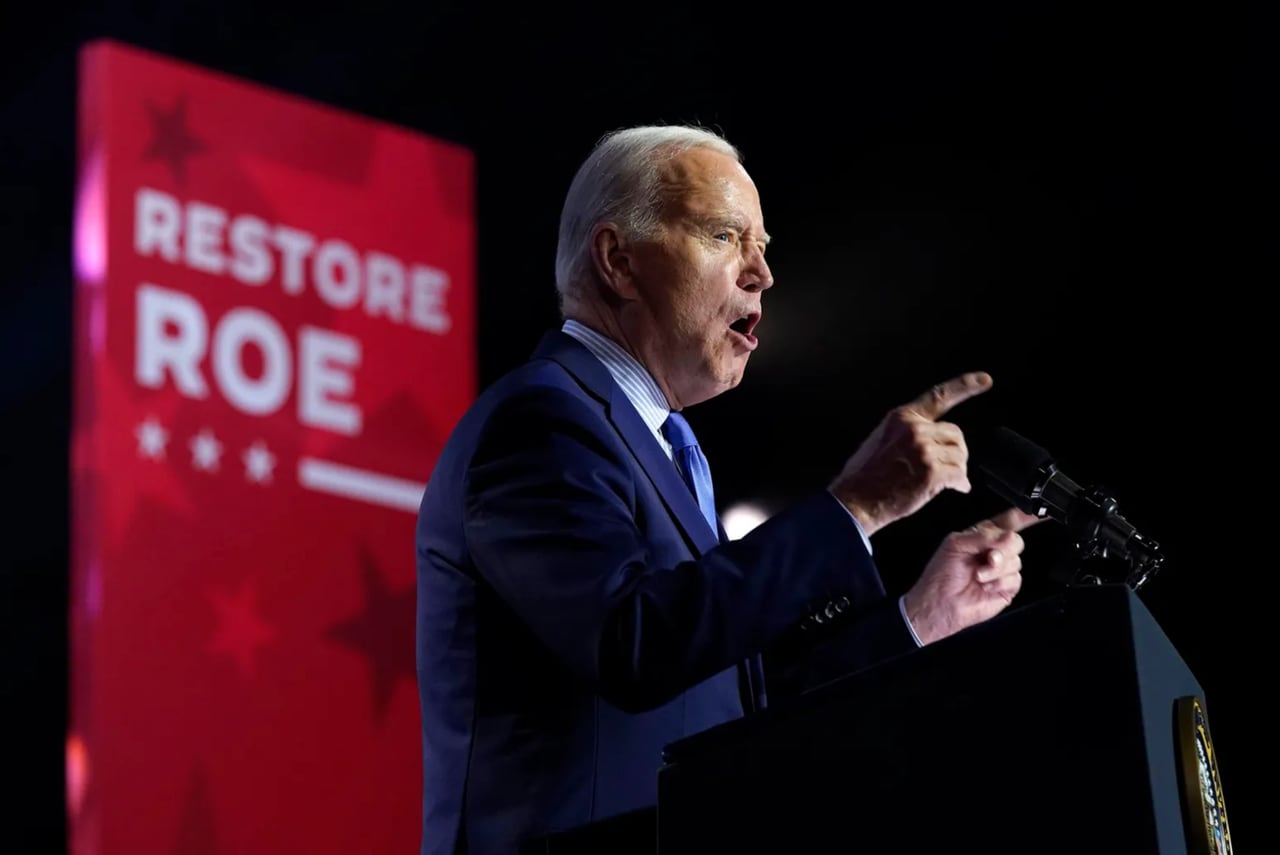Smith: The GOP can stop abortion from being the issue Democrats want
This is an opinion column
From an electoral standpoint, abortion isn’t as big of a deal as Democrats hope. While the Alabama Supreme Court’s wrongheaded decision related to frozen embryos has certainly set the media talking heads ablaze, abortion isn’t the top concern for most voters. Republicans must refine messaging on reproductive issues before that changes.
“What do you think is the most important problem facing the country today?” Gallup has been asking voters that question for decades. Various concerns about the economy are perennially at the top of the list. Recently the only other responses in double digits have been “immigration” and “government/poor leadership.”
Abortion is the top issue for a whopping two percent of respondents. As passionately as we feel about the fundamental issues attendant to life’s inception, almost none of us view it as the most important problem facing America. When we vote, most of us think about issues we’re facing in the moment and which candidate will most effectively address them. Thankfully, most Americans aren’t facing abortion decisions on a regular basis.
That doesn’t mean we don’t have strong feelings on the issue.
Both Gallup and Kaiser Family Foundation provided polling in 2023 which suggested that roughly a third of voters will only vote for a candidate who shares their views on abortion. The bigger question is whether that cohort actually shifts any votes along Democratic or Republican lines. For example, most hardline pro-choice voters weren’t going to vote Republican even before the Supreme Court’s Dobbs decision.
That number connects with other polling Gallup has done for decades indicating roughly two-thirds of Americans have consistently believed that abortion should be legal under some circumstances. What those circumstances are varies widely, but the bottom line is that the hardliners in either direction on abortion represent a minority of Americans.
Not only is abortion policy not the driving federal political issue for most Americans, but the Supreme Court’s Dobbs opinion didn’t actually ban abortion. It moved the issue to the states. We’ve seen seven statewide ballot provisions related to abortion since 2022, and the side favoring abortion access prevailed in each instance. That includes more conservative states like Ohio, Kansas, and Kentucky.
Predictably, states under Democratic control like New York, Maryland, and California have enacted additional abortion protections since Dobbs. At the same time, Republican-controlled states like Tennessee – and most of the South for that matter – have restricted abortion or banned it altogether.
If anything, we’re seeing that values on abortion in a post-Hobbs world are more accurately reflected from state to state. For abortion rights to drive federal electoral politics, Democrats need voters in swing states to believe they’re better off with a monolithic federal abortion policy instead of one crafted to reflect the values of the state where they live.
This brings me to the real issue for Republicans.
Republicans at the federal level should be laser focused on one question related to abortion: Who should decide the issue?
Americans passionately disagree on abortion, and it’s better to decide it from state to state instead of a one-size-fits-all federal policy. Yes, I understand the authoritarians among us want to hand down their preferred policy from Washington, D.C., but we should reject those impulses.
Look to federal drug policy on cannabis as an example of a national criminal policy which no longer enjoys popular support in a number of states. Federal law is clear, but it’s also widely ignored where states have decided they don’t particularly care about medicinal and recreational cannabis use.
Are we going to change the nuances of abortion law every time a political party gets control of the White House, Senate, and House of Representatives? Once the issue is a matter of federal law, that’s exactly what will happen. It’s also why America’s founders were smart enough to restrict the federal government’s power.
The Dobbs decision was a radical victory for red state majorities who wanted more restrictive abortion policies. Republicans should take the win and stick with the position that abortion policy should be decided by the states.
Democrats are perfectly willing to federalize the issue because the Supreme Court had effectively done as much for decades. Republicans who push for a federal abortion ban will certainly connect with their base voters, but they do not have the votes to move such legislation and won’t have them any time soon. Meanwhile, Democrats will be able to increasingly federalize the issue and make it far more electorally relevant.
Republicans should also be careful about applying criminal sanctions for abortions outside of state lines. Right off the bat, states face real constitutional concerns over such a practice. In his Dobbs concurrence, Justice Kavanaugh clarified that the question of whether a State may “bar a resident of that State from traveling to another State to obtain an abortion” is “not especially difficult”—”the answer is no based on the constitutional right to interstate travel.” Given Kavanaugh’s position, it’s a legal loser. Again, Democrats use such efforts from states like Alabama to elevate the issue to the federal level.
Democrats seem to believe that the Dobbs decision paves the way to victory in November. That isn’t the case…yet. Republicans, especially former President Donald Trump, will radically determine the extent to which Democrats will be able to use abortion as a lever to political power. Republicans must pay attention to where the American people are on the complexities of abortion and focus on winning in the states. Top-down policies from Washington are often well-intentioned disasters. Abortion was no exception under Roe v. Wade. It isn’t now.
Smith is a recovering political attorney with four boys, two dogs, a bearded dragon, and an extremely patient wife. He’s a partner in a media company, a business strategy wonk, and a regular on talk radio. Please direct outrage or agreement to [email protected] or @DCameronSmith on X or @davidcameronsmith on Threads.
